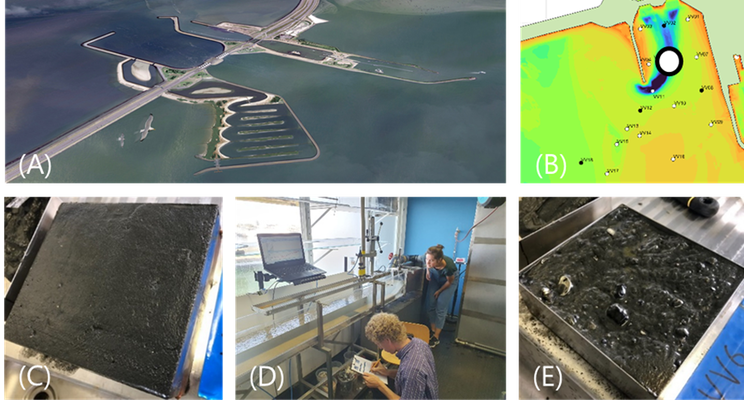M. Traas1*, N. Geleynse1, K. van der Laan1, K. Röell1, L. Perk1
1 WaterProof Marine Consultancy and Services
* meike.traas@waterproofbv.nl
Introduction
Near the discharge locks at Kornwerderzand, a cut in the Afsluitdijk is realized for fish migration. At the Lake IJssel side, a meandering stream is planned: the fish migration river (VMR). Here, fish can adapt to the saline-fresh water transition. Our study focuses on two aspects: (1) expected changes in the morphology of the lake bed eastward of the VMR and adjacent to the existing scour holes at the discharge locks and (2) expected changes in the salinity distribution. This work focuses on the first aspect.
Objective and Methods
To determine the expected future morphological changes, first the existing lake bed is characterized. To this end, we took bed samples at various locations in the study area for grain size analysis, to determine the sand-mud composition and to perform erosion tests in the flume. The data acquired from the laboratory tests served as input for the construction of a Delft3D morphodynamic model of the study area. Discharge data were used as hydrodynamic forcing. Measured changes based on recent multibeam surveys by Rijkswaterstaat were analysed and used to calibrate the model for the existing bathymetric configuration.
Results
The calibrated model provides a useful tool to assess the morphological response of the lake bed to specific interventions entailing bathymetric changes as well as to future changes in the lock discharge regime.

Figure 1: (A) Artist impression VMR, (B) Location bed samples, (C) Sample prior to erosion experiment (D) Set-up of flume in lab WaterProof, (E) Bed sample after execution of erosion experiment.


